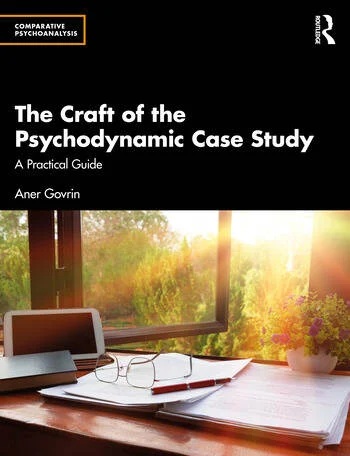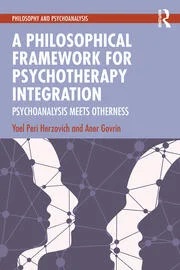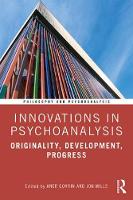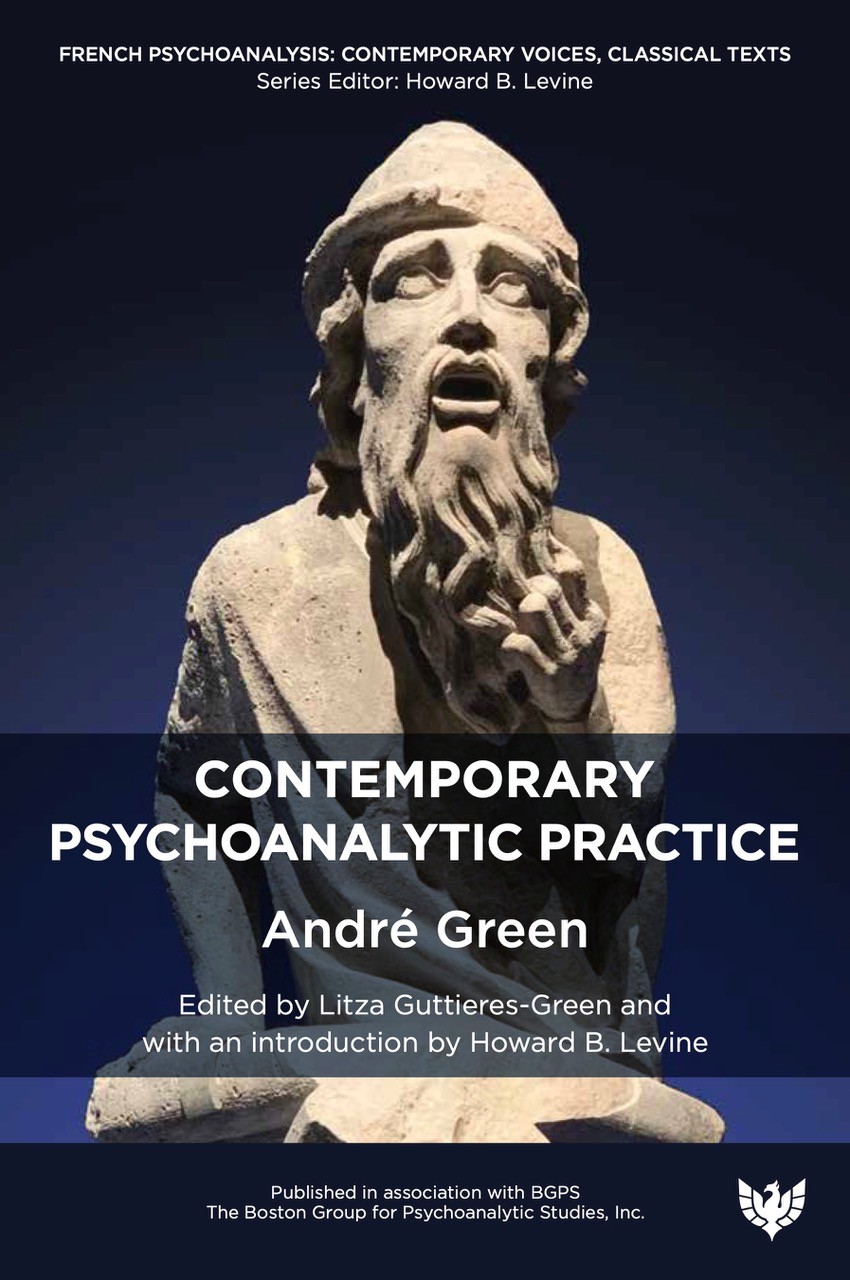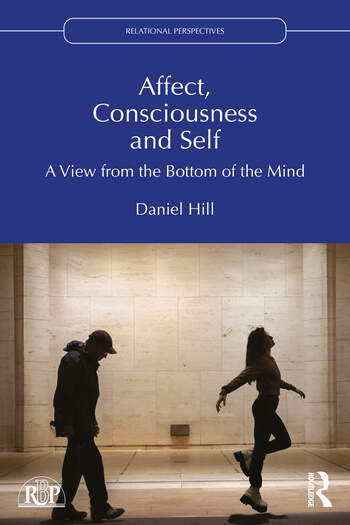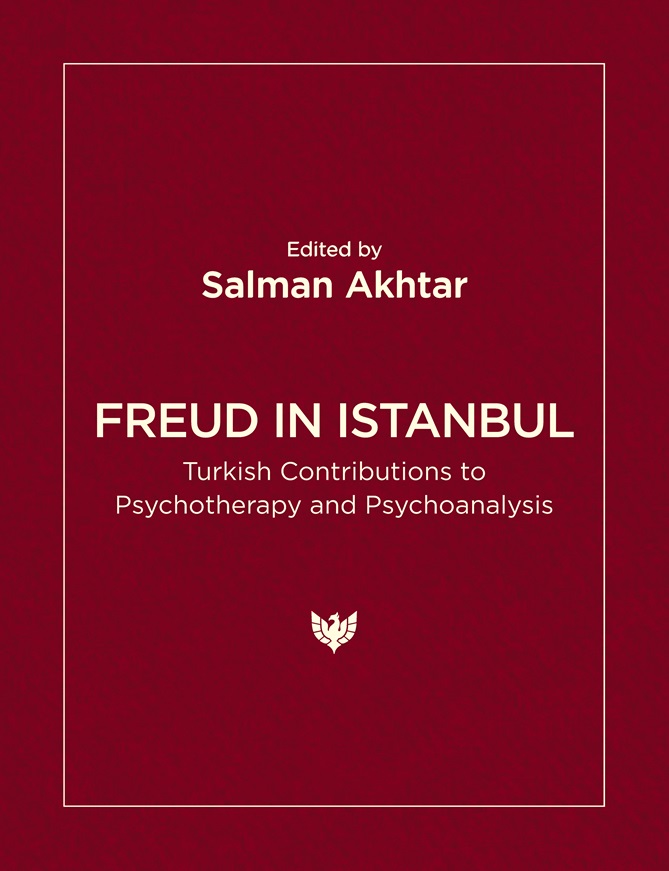How Philosophy Changed Psychoanalysis: From Naive Realism to Postmodernism
Part of Philosophy and Psychoanalysis series - more in this series
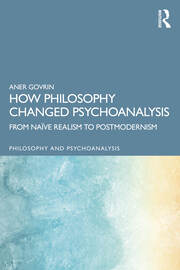
Book Details
- Publisher : Routledge
- Published : October 2024
- Cover : Paperback
- Pages : 218
- Category :
Psychoanalysis - Catalogue No : 97815
- ISBN 13 : 9781032806990
- ISBN 10 : 1032806990
Also by Aner Govrin
There are currently no reviews
Be the first to review
Through this book, philosopher and psychoanalyst Aner Govrin demonstrates how psychoanalysis' engagement with philosophy formed a crucial factor in the evolution of new psychoanalytic theories in three areas: perception of truth, developmental theories, and study of psychoanalytic treatment.
Beginning with a Freudian perspective, through ego psychology to the intersubjective and the relational approach, Govrin shows that philosophy seeps into psychoanalytic theory itself, becoming a constitutive factor. When we discuss psychoanalysis, we cannot do it without reference to philosophy since virtually every sentence it has generated harks back to and is embedded in philosophy. Moving onto the Post-psychoanalytic Schools Era in the second part, this seminal volume provides a model for understanding the evolution of psychoanalytic thought in the postmodern era, where "sensibilities" like the relational approach and infant research replaced the orthodox psychoanalytic schools. Govrin also explores whether psychoanalysis is a branch of philosophy, how psychoanalysis progresses, what a psychoanalytic innovation is, and why mainstream psychoanalysis rejects neuropsychoanalysis.
Exploring the intricate relationship between psychoanalysis and philosophy, this book will be of interest to clinicians, scholars, teachers, and students of contemporary psychoanalysis across a broad spectrum of theoretical orientations, as well as those in the fields of philosophy of science, epistemology, and neuropsychoanalysis.
Reviews and Endorsements
A fascinating and useful exploration of the continuing development of psychoanalysis in relation to influences of disciplines outside it, including philosophy, shifting worldviews and science. The author brings out connections between different psychoanalytic sensibilities and impacts of evolving surrounding disciplines. I'm tempted to speak of multiple faces, roots and currents of the shifting philosophical zeitgeist of psychoanalysis.
Michael Eigen PhD is author of The Psychotic Core, Emotional Storm, The Psychoanalytic Mystic, Bits of Psyche
In this provocative and intellectually stimulating volume, Aner Govrin takes us on a journey from Freud to the present, focused on the inextricable link between philosophy and psychoanalysis. Tracing the historical changes in philosophy, he illustrates how they are mirrored in analytic theory from classical analysis to the Postmodern Turn. He creatively argues that no new school of psychoanalytic thought has emerged since the 1980’s, the focus now being on “not knowing,” and creating “sensibilities” rather than complete theories. As a philosopher, as well as a psychoanalyst, he brings unique observations and informative anecdotes to this scholarly yet accessible book. I highly recommend it for its thought-provoking look at the history and current status of psychoanalytic thinking. And for the implicit challenge to create new theories that meet the standard of philosophical rigor.
Karen J. Maroda, Ph.D., ABPP. Assistant Professor of Psychiatry, Medical College of Wisconsin and private practice, Milwaukee, US
This book shows how psychoanalysis became less enamoured with the tenets of positivist science, just as positivist science became less enamoured with psychoanalysis. It is an engaging read, even for positivist scientists like me!
Mark Solms, Editor, Revised Standard Edition of the Complete Psychological Works of Sigmund Freud
Table of Contents
Introduction: Is psychoanalysis a philosophy?
Part I - How Philosophy Changed American Psychoanalysis?
1. Freud's Compromising Positivism
2. Classical Psychoanalysis
3. Heinz Kohut's Self- Psychology
Part II - PostModernism and Intersubjectivity
4. The Intersubjective Approach
5. The Relational Approach
Part III - The Post-psychoanalytic Schools Era
6. Back to Positivism: The Case of Neuropsychoanalysis
7. Facts and Sensibilities: What is a psychoanalytic Innovation?
Concluding Remarks
About the Author(s)
Aner Govrin PhD is a clinical psychologist, a lecturer at The General and Interdisciplinary Studies at Bar Ilan University and a member of Tel-Aviv Institute for Contemporary Psychoanalysis.
Customer Reviews
Our customers have not yet reviewed this title. Be the first add your own review for this title.
You may also like
Freud in Istanbul: Turkish Contributions to Psychotherapy and Psychoanalysis
Salman Akhtar
Price £40.49
save £4.50


